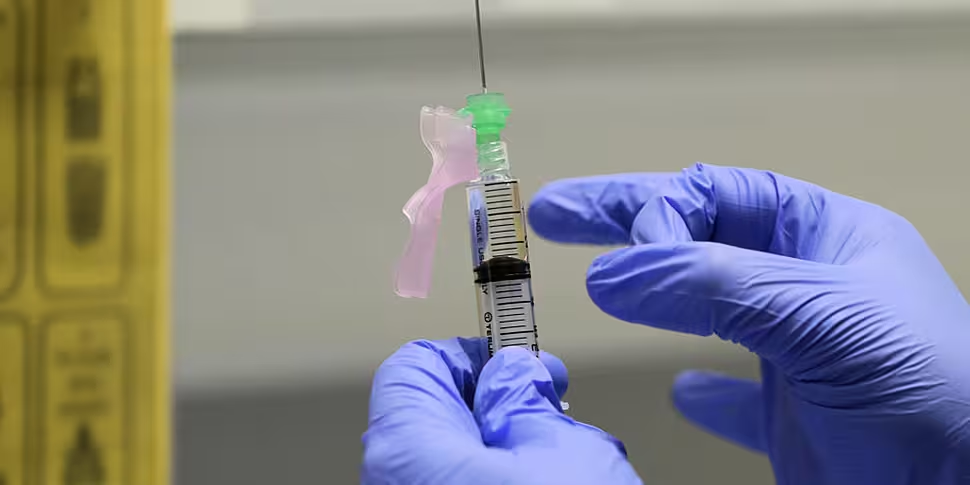There are now five coronavirus vaccine candidates in the key third phase of trials, Professor Luke O'Neill has said.
He says a new candidate vaccine that has emerged is now set to see the "biggest trial in medical history".
"This is the biggest trial in medical history." @laoneill111l on the latest #COVID19 vaccine development pic.twitter.com/J4pQcbbYY5
— NewstalkFM (@NewstalkFM) September 28, 2020
However, the leading immunologist says more than one vaccine will likely be needed in order to vaccinate billions of people around the world.
Johnson & Johnson last week announced results of its initial clinical trials of a candidate vaccine its working on - saying it produced a "strong neutralising antibody response in nearly all participants aged 18 years and older".
The company's now moving to the critical phase three trial - meaning a large-scale trial involving tens of thousands of people.
Professor O'Neill - professor of biochemistry at Trinity College Dublin - told The Pat Kenny Show that Johnson & Johnson's effort had been 'under the radar'.
He said: "We know about all these vaccines trials that are running... the three front-runners are Pfizer, AstraZeneca/Oxford, and Moderna. We keep hearing about them.
"Then suddenly last week Johnson & Johnson put their hands up and said 'we have a vaccine'... we knew they were doing it, but suddenly they said they are starting their phase three and it's a 60,000 person trial."
He described it as an "unbelievable number of people" that represents the biggest trial in medical history.
The trial is being run in countries such as the US, Argentina, Brazil, Columbia, Mexico and Peru.
Professor O'Neill said there's a number of reasons why the Johnson & Johnson vaccine is a particularly exciting prospect.
He explained: "You don't need to freeze it - other vaccines you have to freeze or keep in the fridge, and that's always been an issue in the developing world.
"It's a one-shot vaccine, they think - whereas the other ones you need a shot and a booster shot, which is twice the effort."
He also noted that it's using similar technology to other successful vaccines for diseases such as Ebola - giving another cause for hope.
He said: "Because those vaccines work, there's optimism this is going to work as well.
"Let's just keep our fingers crossed. There's a fifth [trial] running as well.. a company called NovaVax. We now have five vaccines in phase three, and they're all racing hell for leather".
Vaccinating the world
The question for most people remains when exactly we'll see a vaccine begin to be deployed.
Professor O'Neill explained: "There's a controversy at the moment where some companies are hinting if they get a bit of a signal they'll stop the trial early and release the data. We don't like that, as you're changing the rules as they go along.
"Then again, if you get a big result early on and the results look reasonable... they might be tempted to release the information."
He said all the companies are now saying we'll have key data about their effectiveness by the end of the year.
He said: "We want to vaccinate the world as quickly as possible against this virus - and it won't be easy.
"By the time we get to this time next year, if all those vaccines are out, you could have vaccinated half the world by this time next year.
"We need more than one vaccine for definite, because there won't be enough to vaccinate the world from a single supplier."









